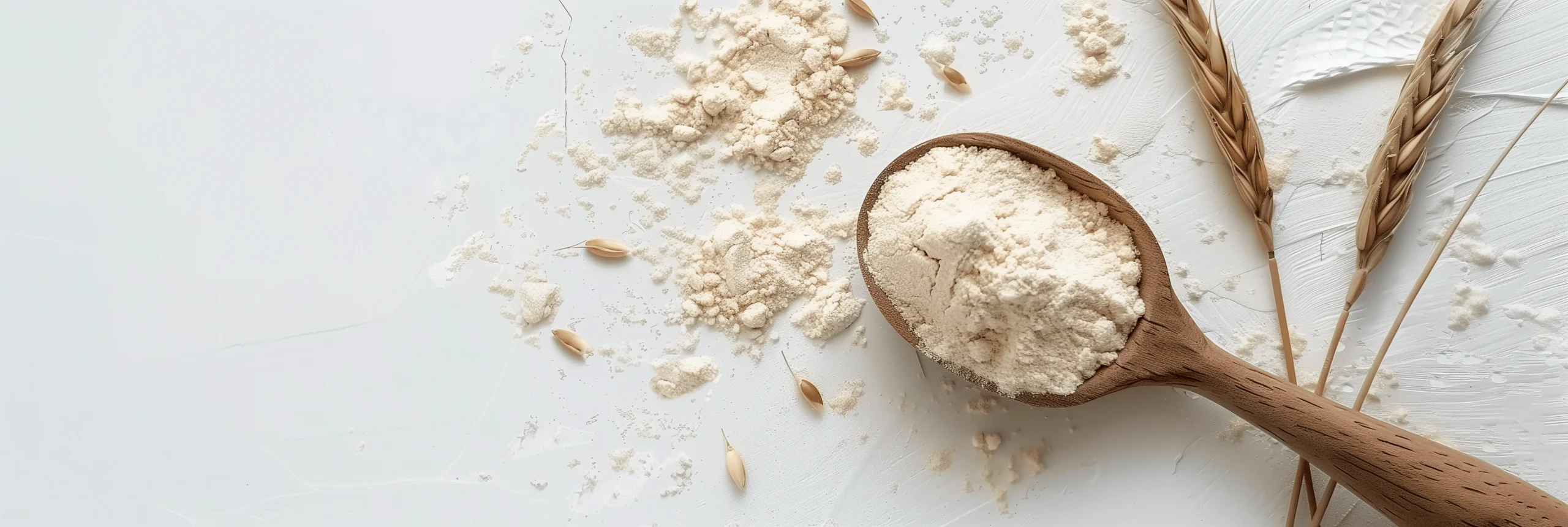In the search for natural, wholesome foods that can help with weight gain, many turn to nutrient-dense options packed with calories and health benefits. One such traditional food that has gained attention is talbina — a warm, comforting porridge made from finely ground barley flour and milk, sweetened with honey. While talbina has been cherished for centuries for its soothing qualities and nutritional value, many wonder: is talbina good for weight gain? In this blog post, we’ll dive deep into what talbina is, its nutritional profile, and whether it can help those looking to gain weight healthily.
What is Talbina?
Talbina is a traditional Middle Eastern and Islamic remedy food made primarily from barley flour and milk. It is often sweetened with honey and flavored with cinnamon or other spices. Talbina has been mentioned in classical Islamic texts and is celebrated for its easily digestible nature, making it suitable for people recovering from illness or those needing gentle nourishment.
Barley itself is a whole grain rich in fiber, vitamins, and minerals, which adds to talbina’s reputation as a nutritious and wholesome food. Traditionally, talbina is consumed as a warm porridge, providing comfort and sustenance especially during cold weather or times of recovery.
Nutritional Profile of Talbina
To understand whether talbina is good for weight gain, we need to look at its nutritional makeup. Talbina primarily consists of:
-
Barley flour — rich in complex carbohydrates, fiber, B vitamins, and minerals like magnesium, selenium, and iron.
-
Milk — provides high-quality protein, fats, calcium, vitamin D, and other essential nutrients.
-
Honey (optional) — a natural sweetener offering quick energy in the form of simple sugars.
Macronutrients
-
Carbohydrates: Barley flour is a good source of complex carbohydrates, which provide slow-releasing energy.
-
Protein: Milk adds a good amount of complete protein to talbina, which is vital for muscle repair and growth.
-
Fats: The fat content depends on the type of milk used (whole, skim, or plant-based). Whole milk provides healthy fats which contribute to calorie density.
-
Calories: The combination of barley, milk, and honey makes talbina calorie-dense enough to support weight gain when consumed in sufficient quantities.
Micronutrients
Talbina is rich in:
-
Magnesium — important for muscle function and energy production.
-
Iron — supports oxygen transport in the blood.
-
Calcium — vital for bone health.
-
B vitamins — essential for metabolism and energy production.
-
Antioxidants — barley contains antioxidants that help reduce inflammation.
Is Talbina Good for Weight Gain?
Caloric Density and Weight Gain
To gain weight, one must consume more calories than they burn. Talbina can be an excellent addition to a weight-gain diet because it provides a balanced combination of carbohydrates, proteins, and fats. The slow-digesting barley carbohydrates ensure sustained energy release, while the milk adds quality protein and fat calories. Adding honey increases the calorie content further without adding excessive volume, which can be helpful for those who struggle with appetite.
Protein Content
Protein is crucial for healthy weight gain, especially if you want to gain muscle mass rather than just fat. The milk in talbina provides a complete amino acid profile, supporting muscle repair and growth. While barley flour contains some protein, milk’s protein content is more significant.
Digestibility and Nutrient Absorption
Talbina is easy to digest due to the fine grinding of barley flour and the liquid nature of the porridge. This makes it an ideal food for people who find it hard to eat heavy meals but want nutrient-rich calories. It’s gentle on the stomach and can help with nutrient absorption, which is essential for weight gain in individuals with digestive sensitivities.
Satiety and Eating Frequency
One consideration when trying to gain weight is how full a food makes you feel. Talbina is moderately filling due to its fiber content and protein, which can help keep hunger in check without suppressing appetite too much. This balance helps in managing frequent meals, essential for healthy weight gain.
How to Use Talbina for Weight Gain
If you want to incorporate talbina into your diet for weight gain, here are some tips:
1. Use Whole Milk or Full-Fat Dairy Alternatives
For higher calorie content, use whole milk or full-fat dairy alternatives like coconut milk or almond milk. This increases the calorie and healthy fat content, supporting weight gain.
2. Add Nut Butters or Seeds
Mixing in nut butters (such as peanut butter or almond butter) or adding seeds (like chia or flaxseed) can boost calorie density and add healthy fats and proteins.
3. Sweeten with Natural Ingredients
Add honey, maple syrup, or dates to increase calorie content naturally while making talbina tastier.
4. Eat as a Snack or Meal Supplement
Talbina can be eaten as a breakfast, a snack between meals, or even as a bedtime meal. Its soothing nature makes it especially good before sleep when muscle recovery and growth are enhanced.
5. Pair with Protein-Rich Foods
Complement talbina with other protein-rich foods like eggs, nuts, or Greek yogurt to optimize muscle gain.
Other Health Benefits of Talbina
Beyond weight gain, talbina offers several additional health benefits:
-
Supports digestion: The fiber content in barley promotes healthy digestion and bowel regularity.
-
Heart health: Barley has been shown to lower cholesterol levels, supporting cardiovascular health.
-
Anti-inflammatory: Talbina’s antioxidants help reduce inflammation.
-
Bone health: Calcium and vitamin D from milk contribute to stronger bones.
-
Immune support: Nutrients in talbina support overall immune function.
Who Should Consider Talbina?
-
People recovering from illness or surgery needing gentle nutrition.
-
Individuals with poor appetite looking for calorie-dense but easy-to-digest foods.
-
Those trying to gain weight healthily with nutrient-dense options.
-
Anyone looking for a comforting, traditional food that supports overall wellness.
Final Thoughts:
The answer is yes — talbina is good for weight gain, especially when prepared mindfully with calorie-dense ingredients like whole milk, honey, and healthy fats. It provides a balanced mix of carbohydrates, proteins, and fats along with important vitamins and minerals to support muscle growth and overall health.
Talbina’s gentle digestibility and nutrient-rich composition make it an excellent choice for anyone looking to gain weight in a healthy, sustainable way. Combined with a balanced diet and regular strength training, talbina can be a valuable part of your weight gain strategy.
Simple Talbina Recipe for Weight Gain
Ingredients:
-
4 tbsp barley flour (finely ground)
-
2 cups whole milk
-
1 tbsp honey (or to taste)
-
1 tsp cinnamon (optional)
-
1 tbsp almond butter or peanut butter (optional)
-
Nuts or seeds for topping (optional)
Instructions:
-
In a saucepan, heat the milk over medium heat.
-
Gradually whisk in the barley flour to avoid lumps.
-
Cook and stir continuously until it thickens (about 5–7 minutes).
-
Remove from heat and stir in honey, cinnamon, and nut butter.
-
Serve warm, topped with nuts or seeds if desired.
Enjoy this comforting porridge as part of your weight gain plan!








